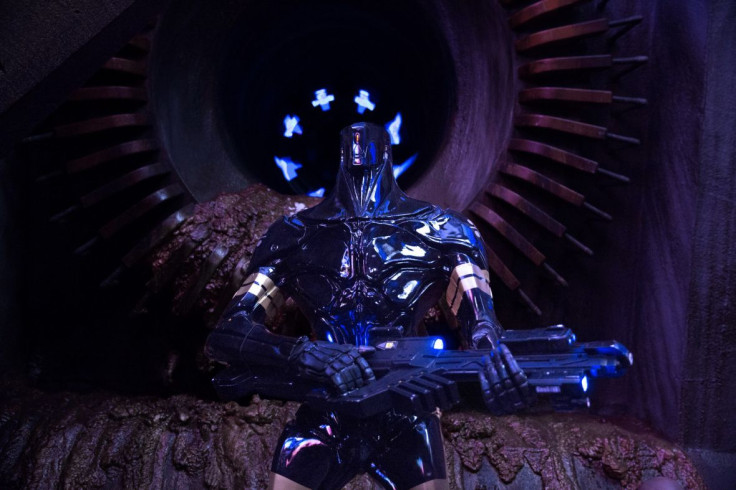With Star Wars providing the industrial grit and Guardians of the Galaxy 2 amply filling our quota of rainbow-soaked special effects, is there anything new Valerian and the City of a Thousand Planets can bring to the overburdened space opera genre? The final Valerian trailer holds out hope for something flashy, big budget AND new. If director Luc Besson achieves anything close to The Fifth Element, then July 21 will be a good day for tentpole sci-fi.
Based on French sci-fi comic Valérian and Laureline, Valerian and the City of a Thousand Planets is about, as the original title suggests, spatio-temporal agents Valerian (Dane DeHaan) and Laureline (Cara Delevingne). In their onscreen adventure they’ll be saving the intragalactic mecca Alpha and its diverse population, hailing from over a thousand different worlds.
Backed by the ethereal choir from Coolio’s “Gangsta’s Paradise,” the final trailer for Valerian and the City of a Thousand Planets is colorful first and foremost. Its palette is so bright as to be unreal, maybe even beyond the visual palette in the ultra-colorful Guardians of the Galaxy 2 and upcoming Thor: Ragnarok.
It also works hard to instill a sense of awe, describing Valerian as an “event” in “a universe beyond imagination,” a tricky selling point in a decade with a surplus of CGI extraterrestrial vistas. It’s hard to imagine Valerian succeeding as well as the Guardians of the Galaxy sequel — with its excellent ensemble, great screenplay (though the Marvel movie tone pervades) and bountiful visual inventiveness — but this trailer makes a strong pitch. There is indeed a lot of imagination on display from Besson, especially Valerian bashing through walls and shooting out energy platforms, revealing new aliens and sights on the other side of each smashed wall.
But what Valerian and the City of a Thousand Planets offers, more than anything, is the tantalizing possibility of a space opera with a different playbook than the Disney franchise model. There’s nothing wrong with Star Wars or Guardians of the Galaxy, but there are series expectations for each that considerably narrow the band of narrative possibility.
Educational policy blogger Freddie DeBoer provided some useful benchmarks in a blog post on tentpole movies titled “Franchises that are appropriate for children are inherently limited in scope.” Here’s his list of “basic elements of storytelling that are forbidden in big franchise movies”:
- Sex, in almost any form.
- Politics beyond the most banal endorsements of inclusivity or those so abstracted as to be meaningless.
- Violence that emphasizes consequences, suffering, and trauma rather than violence that is badass, funny, balletic, or otherwise enjoyable.
- Religion other than vague mysticism and New Age-y positivity.
- Tragedy, in a real and enduring sense, or stories that otherwise leave the audience feeling sadder or darker when they leave the theater than when they came in the theater.
- Moral and political complexity.
- Thematic or narrative elements that in any other way threaten the likelihood that a majority of audiences and critics will walk out saying “it was a good time.”
In some ways Valerian is clearly trying to duplicate the big-budget franchise formula. It’s not like the producers don’t want a massive hit and sequels. But think back to The Fifth Element, which arguably hits two or three of these attributes (most obviously sex). There’s a real possibility Valerian and the City of a Thousand Planets can take space opera to places Disney simply never will.














![[EG April 19] Best 'Stardew Valley' Mods That Will Change](https://d.player.one/en/full/226012/eg-april-19-best-stardew-valley-mods-that-will-change.png?w=380&h=275&f=955520b8313253ee3c39c791f6210f38)



